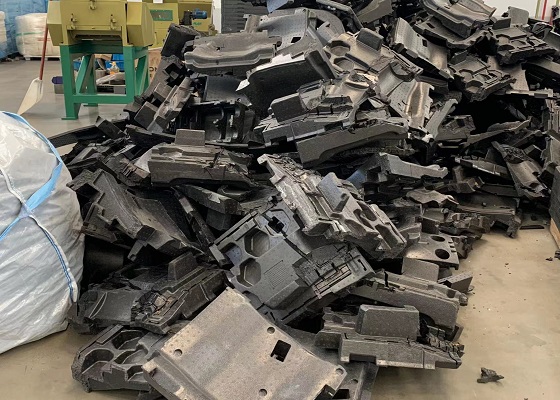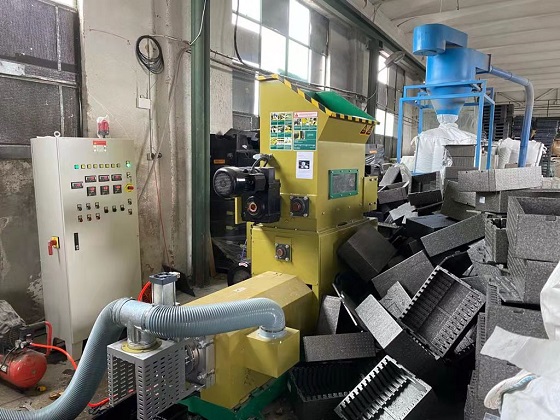Leading Australia's Circular Future: EPP Foam Recycling with GREENMAX Machines
Expanded Polypropylene (EPP) foam, known for its lightweight, shock-absorbing, and insulating properties, is widely used in packaging, automotive parts, and consumer products. However, the same attributes that make EPP valuable also make it a recycling challenge. In response, Australia is stepping up its efforts to manage EPP foam waste through advanced recycling technologies—chief among them, the GREENMAX EPP foam recycling machines.
The EPP Foam Challenge in Australia
Australia faces increasing pressure to reduce landfill waste and improve plastic recycling rates. EPP foam, while fully recyclable, has historically been under-recycled due to its low density and high transportation cost. Traditional waste handling systems were not optimized to deal with EPP, often resulting in the material being discarded instead of recycled.
To tackle this issue, the Australian government has adopted a multi-pronged approach, including regulatory reforms, public awareness campaigns, and support for advanced recycling technologies. Among the most effective technologies leading this transformation are the solutions provided by GREENMAX.
GREENMAX: Revolutionizing EPP Foam Recycling
GREENMAX, a brand of INTCO Recycling, offers state-of-the-art recycling equipment designed specifically for EPP foam waste. Their machines, including the MARS Series hot melting densifier and ZEUS Series compactor, provide a highly efficient and environmentally friendly solution for processing EPP foam.
These machines work by compressing and melting bulky EPP waste into dense blocks, reducing the original volume by up to 90%. This significant reduction makes storage and transportation cost-effective and opens up opportunities for the recycled material to be reused in the manufacturing of new products, such as photo frames, decorative moldings, and even new foam packaging.

Local Implementation and Impact
Across Australia, local governments and private sector entities are beginning to adopt GREENMAX machines as part of their waste management infrastructure. Councils such as Lismore City and Albury City have integrated foam densifiers into their recycling facilities, enabling them to divert EPP waste from landfills and repurpose it for further use.
Major retailers like JB Hi-Fi are also contributing by participating in take-back schemes that ensure packaging materials—including EPP foam—are returned and recycled properly. These efforts are directly aligned with Australia’s National Plastics Plan, which seeks to phase out problematic plastic waste and increase national recycling capacity.
Environmental and Economic Benefits
The adoption of GREENMAX EPP foam recycling machines offers both environmental and economic benefits:
Landfill Reduction: By densifying EPP foam, recyclers can minimize waste volume and extend landfill life.
Carbon Footprint Reduction: Recycling EPP foam reduces the need for virgin plastic production, thereby lowering greenhouse gas emissions.
Revenue Generation: Densified EPP blocks have market value and can be sold as raw material for new products.
Moreover, companies that invest in EPP recycling solutions enhance their sustainability credentials, an increasingly important factor in corporate social responsibility (CSR) and brand reputation.

The Road Ahead
While Australia’s EPP foam recycling infrastructure is growing, continued success depends on public education, policy support, and wider adoption of advanced recycling technologies like those from GREENMAX. Increased awareness of EPP foam’s recyclability and better access to recycling services will be key to achieving circular economy goals.
For businesses, municipalities, and environmental organizations, integrating GREENMAX machines into waste management practices is not only a smart environmental move—it’s also a step toward a sustainable and economically viable future.
